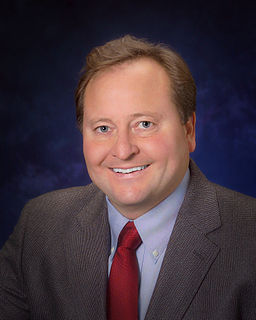A Quote by Brian Schweitzer
If you were just a regular person, you turned on the TV, and you saw Eric Cantor talking, I would say—and I'm fine with gay people, that's all right—but my gaydar is 60-70 percent. But he's not, I think, so I don't know. Again, I couldn't care less. I'm accepting.
Related Quotes
Ninety-nine percent of everyday things are things we don't need - that goes for regular visits to the hairdresser just as it does for clothing. What would it mean if we all consumed 20 percent less? It would be catastrophic. It would mean 20 percent less jobs, 20 percent less taxes, 20 percent less money for schools, doctors, roads. The global economy would collapse.
If I were to look back on my work, I think I accomplished probably about 70 to 75 percent of what I could have. Maybe 60 percent. Somewhere in that area; two-thirds of what I could have accomplished. If I had been a really dedicated person, and really worked hard, I think I could have accomplished more.
The ball scene was never really only gay people. I think people have this notion that if there's a man hanging around a gay man, he must be gay, but that's just stigma. Back in the day, it was the same; there were lots of different people there: gay, straight, whatever. They did not care what they were called because they knew who they were.
You're talking about the 1970s now and not the 1950s. We were all more sophisticated by that time, and I just assumed he was gay. But I do remember when we were all sitting around on a roof one night and Larry turned to me and said, "You do know I'm gay, don't you?" There was a statement made. A declaration. We just never had really talked about it.
I think we waste a lot of time trying to convince other people that we're right. A lot of times we don't actually care what another person thinks, we just want to say what we think. To hear it reflected back to us and that we're okay, to hear that we have been understood and that we're correct - so that we can continue to be who we are in the ways we've been being, and we have nothing to feel bad about and everything is just fine. Even if what we're talking about is, like, police brutality.
I'm hugely inspired by music. I am a big listener of 60's and 70's classic rock. And i really just love the overall freedom of that time, of the late 60's and 70's. I love that you had so many different ways of expressing yourself, fashion was really one of them, the idea of clashing didn't exist, and people were using clothes as an opportunity to express who they were. That is inspiring to me - you could mix textiles, fabrics, you were 100% who you were, and that's where my main inspiration comes from.
When I sent out a casual and nonscientific poll of my own to a wide cast of acquaintances, friends and colleagues, I was surprised, but not really, to learn that maybe 60 percent claimed a belief in a God of some sort, including people I would have bet were unregenerate skeptics. Others just shrugged. They don't think about this stuff. It doesn't matter to them. They can't know, they won't beat themselves up trying to know and for that matter they don't care if their kids believe or not.
I'm certainly not going to tell other people what they should do with their own personal lives. I think it's certainly easier for a director to be out. The public is not going to see a movie because the director is gay or straight. It's maybe a little harder for an actor or actress because of, you know, the love roles and stuff. But gay people have been impersonating heteros in the movies for years. So, hopefully, that is becoming less of an issue. I think it would have been really great if a gay person had played a gay person. That's brave!


































